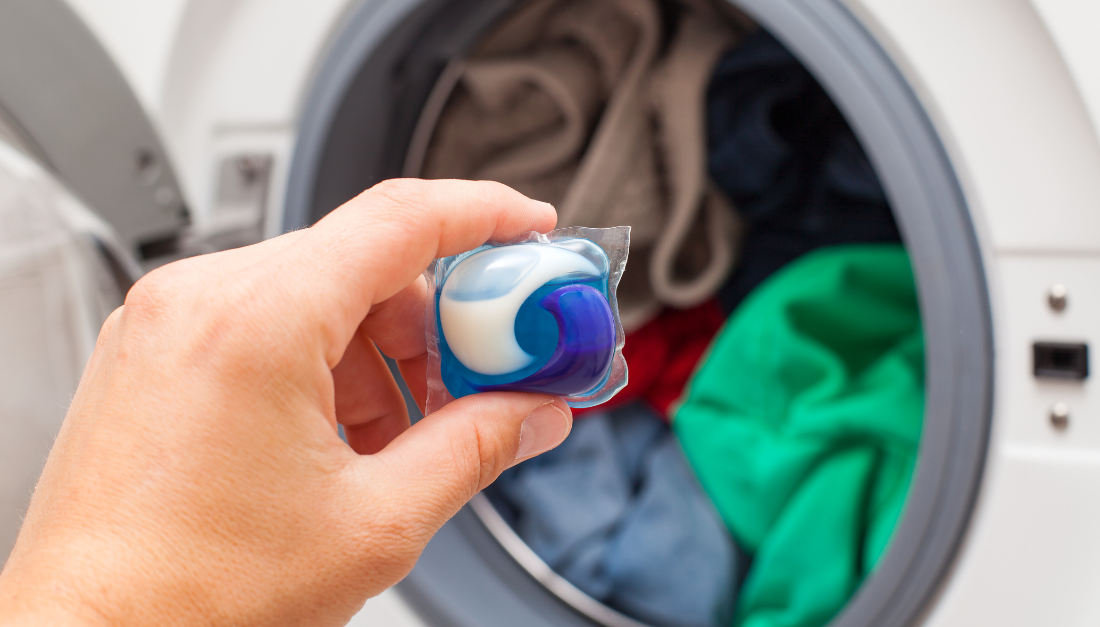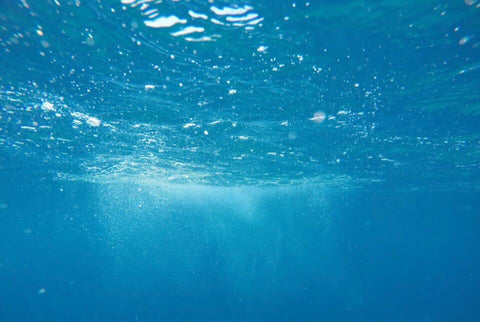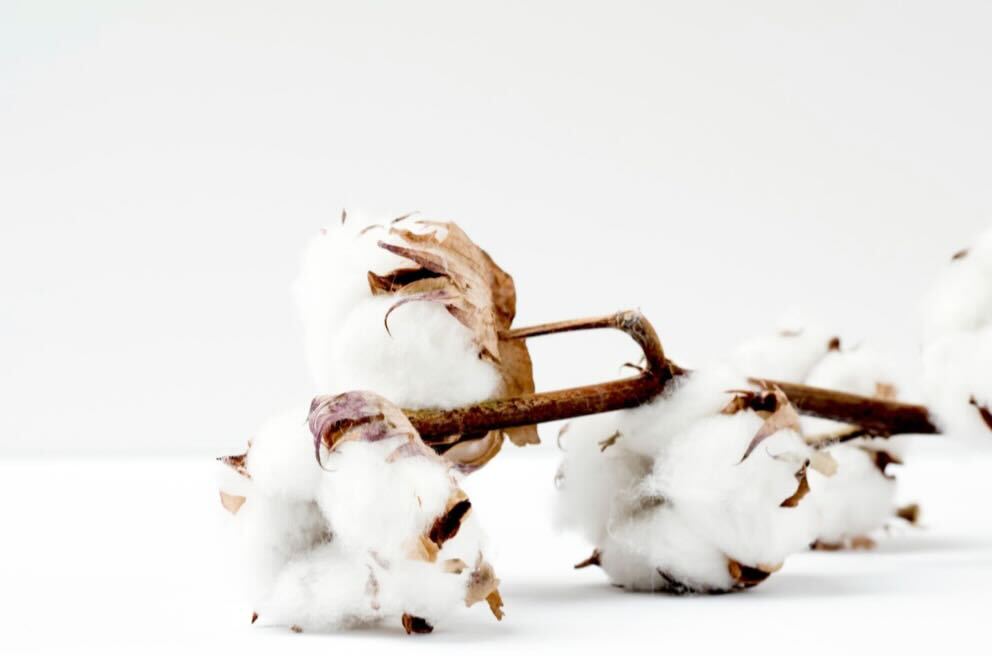
Understanding Polyvinyl Alcohol (PVA): Is it Safe and Climate-Friendly?
Polyvinyl alcohol (PVA or PVOH) is a synthetic polymer that is commonly found in everyday items ranging from laundry detergent to eye drops and even skincare products. However, there has been a lot of confusion about PVA's impact on the environment. As an eco-friendly company, MamaP believes it's important to take an in-depth look at the material and understand why it's a climate-friendly ingredient.
In this article we'll discuss:
-
Is Polyvinyl Alcohol (PVA or PVOH) Safe?
- Is Polyvinyl Alcohol (PVA) a Microplastic?
- Is Polyvinyl Alcohol (PVA) Biodegradable?
- How Does Polyvinyl Alcohol (PVA) Affect the Environment?
- Do MamaP Products Contain Polyvinyl Alcohol (PVA)?

Is Polyvinyl Alcohol (PVA) Safe?
Yes, polyvinyl alcohol (PVA) is a non-toxic, colorless, and odorless biodegradable polymer that is safe to use and consume. The PVA film on products is designed to dissolve as intended, and has unique features to avoid spillage and ensure consumer safety. The soluble film is designed to resist compression and trigger an aversive reaction in case of oral contact, making it safe for cleaning purposes. Additionally, polyvinyl alcohol (PVA) is approved by the Food and Drug Administration for use in food packaging and pharmaceutical applications.

Is Polyvinyl Alcohol (PVA) a Microplastic?
No, polyvinyl alcohol (PVA) film does not contain microplastics, nor does it cause microplastic contamination. Since the film is both water-soluble and biodegradable, it is not considered a microplastic. The high water solubility implies that the films are not within the microplastic scope.
Is Polyvinyl Alcohol (PVA) Biodegradable?
Yes, polyvinyl alcohol (PVA) is confirmed to be biodegradable. This means that it breaks down naturally without requiring a specific setting. PVA is water-soluble, so it dissolves in the wash and flows with the waste water down the drains. Bacterial microorganisms then break down the dissolved film through natural biodegradation, leaving nothing behind. Studies show that at least 60% of PVA film biodegrades within 28 days of dissolving, with about 100% of the film biodegrading in 90 days or less.

How Does PVA Affect the Environment?
The biodegradability of polyvinyl alcohol (PVA) film ensures that there is no concern for persistence or accumulation in the environment. The films do not contaminate the recycling stream and do not break down into microplastics. The polyvinyl alcohol (PVA) cycle ends once it is naturally biodegraded by organisms in the waste water. Many companies, including MamaP, use polyvinyl alcohol (PVA) film as an ingredient to help reduce their environmental footprint.

Do MamaP Products Contain PVA?
MamaP Laundry Detergent Sheets contain polyvinyl alcohol (PVA) as an ingredient. The polyvinyl alcohol (PVA) film allows the sheets to completely dissolve in hot or cold water, making it safe for your skin and the planet. MamaP believes it's important to inform people about the ingredients in our products so that people can make informed decisions for themselves and the planet. By using polyvinyl alcohol (PVA), MamaP is able to provide a carefully formulated laundry detergent that is safe and eco-friendly.
In conclusion, understanding the science behind polyvinyl alcohol is important in determining its impact on the environment and our health. polyvinyl alcohol (PVA) is safe to use, biodegradable, and does not contain microplastics. By using polyvinyl alcohol (PVA) in our laundry detergent sheets, MamaP is able to provide a simple household chore that is more earth- and climate-friendly.

Sources:
https://pubmed.ncbi.nlm.nih.gov/12504164/
https://www.degruyter.com/document/doi/10.1515/tsd-2020-2326/html?lang=en
https://www.fda.gov/media/128920/download
https://www.mdpi.com/2673-8929/1/1/8/htm
https://oceanservice.noaa.gov/facts/microplastics.html




2 comments
I live in a Great Lake State. I have heard that PVA’s are harmful and the New York another Great Lake State is about to ban them for this reason. GL States are special and guard our waters well. We need to know everything.
Diane McDonald
Thank you for publishing information on PVA !!
So informative, helpful to consumers who truly are looking to make a difference in the health of of planet.
Keep up the good work.
Lisa Doty
Leave a comment
This site is protected by hCaptcha and the hCaptcha Privacy Policy and Terms of Service apply.